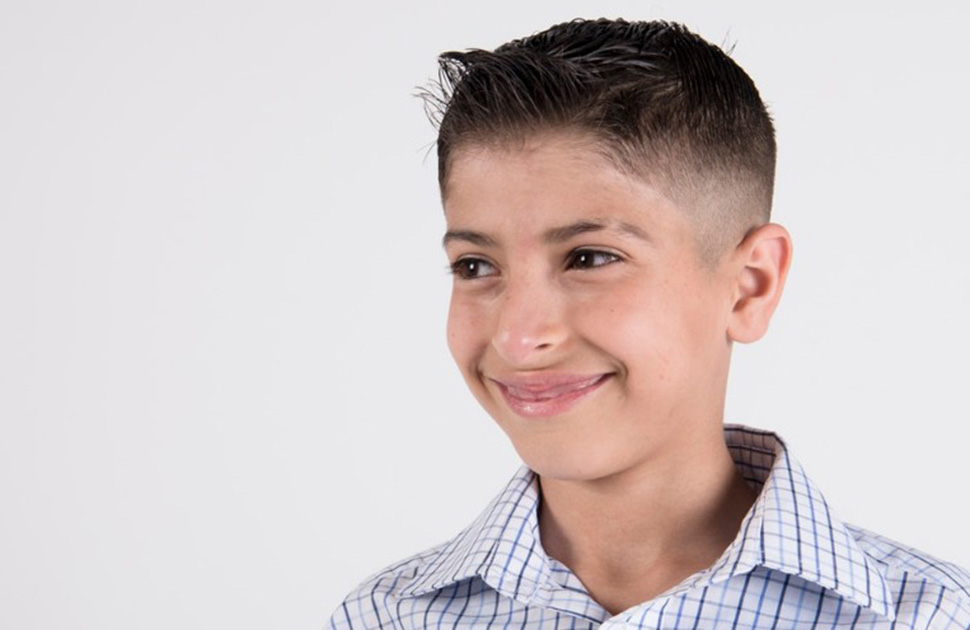CHEO’s Pulmonary Function Laboratory (PFT Lab) provides lung function testing for children 6 - 17 years of age. The testing we offer includes:
- Basic lung function testing (spirometry); we can also measure response to bronchodilator
- Lung volume measurement (as well as diffusing capacity of the lungs)
- Specialized testing for asthma (methacholine challenge)
- Exercise testing
- Exercise induced asthma test
- Cardiopulmonary exercise test (VO2max)
- Measurement of the strength of the breathing muscles
For patients coming to Respirology for a regular PFT that is not Methacholine/CPET testing, temporarily stop using the following medications before a lung function test:
• Short acting bronchodilators (Ventolin, Bricanyl, Airomir, Atrovent) 4 hours before your test.
• Long-acting bronchodilators (salmeterol or Serevent®, formoterol or Oxeze®) 12 hours before your test.
• Inhaled steroid long-acting bronchodilator combination puffers (Advair, Symbicort, Breo, Zenhale) 12 hours before the test.
• Inhaled steroids (Flovent, Pulmicort, Alvesco, Qvar): Don’t need to withhold
What to expect
| Cardiopulmonary exercise tests (jones stage 1) and exercise induced broncho-challenge tests: specialized tests to test lung volume and capacity |
| About the test Cardiopulmonary exercise testing (CPET) is an important tool to help your child or youth’s care team evaluate their exercise capacity and anticipate health outcomes for patients with cardiac conditions and respiratory impairment. This is done by having your child or youth complete exercise while their care team closely monitors how their heart, cardiovascular and musculoskeletal systems are reacting. The results of this test can accurately determine a child or youth’s exercise capacity and may help provide a diagnosis in cases where a child or youth is experiencing exercise intolerance or impairment. Getting ready for the exercise test If your child or youth is taking medications, it’s important to follow these instructions on when to stop certain medications before your test:
If these medication instructions are not followed, your test may not be able to be performed on the scheduled date, and will need to be cancelled. If you have any questions, please contact your care team. What to bring and where to go Bring running shoes and comfortable clothing for the test. The test is done in clinic C18 on the third floor of CHEO, please check in there when you arrive. Visit our maps and locations page for information. Please review our caregiver policy before coming to CHEO. What to expect during the exercise test
|
| Methacholine challenge tests: specialized testing for asthma |
| About the test The purpose of this test is to find out if your child or youth has increased airway irritability. Getting ready for the test If your child or youth is taking medications, it’s important to follow these instructions on when to stop certain medications before your test:
What to bring and where to go The test is done in clinic C18 on the third floor of CHEO, please check in there when you arrive. Visit our maps and locations page for information. Please review our caregiver policy before coming to CHEO. What to expect during the test
The test lasts about 60-90 minutes. This test does not cause an asthma attack. While many don’t experience any symptoms from inhaling the aerosols, it can be associated with mild shortness of breath, cough, chest tightness, wheezing, chest soreness or headache. Rest assured — your child or youth’s care team will be with them for the entire test and will closely monitor their reaction. If your child or youth does experience any of these symptoms, they normally last for only a few minutes and disappear once they have taken a reliever or bronchodilator medication such as Ventolin. In rare cases of more severe narrowing of the airways, this may result in severe shortness of breath. If this happens, the test will be immediately stopped, and your child or youth will be treated with a bronchodilator. |
| Exercise testing |
|
For exercise tests, you/your child will exercise on an exercise bike or treadmill for 5-20 minutes, after which we’ll measure lung function.
This test is tiring and can cause temporary shortness of breath. |
Make a referral
To make an appointment, your pediatrician, family physician, nurse practitioner, or another physician-specialist must refer you. All referrals are reviewed and appointments are scheduled based on the urgency of the case.
Children must be at least 6 years of age and able to cooperate with the respiratory therapists’ instructions, including taking forceful and prolonged breaths. For methacholine and exercise tests, children must be at least 8 years old and have shown that they can do a basic lung function test.
Keep us updated
Advise the laboratory at least 2 days before the test if you/your child has had recent eye surgery, a pneumothorax, or recent dental surgery, or if your child has an active respiratory infection (such as a cold, the flu, pneumonia, or tuberculosis (TB) as we will re-schedule the test.
CHEO is committed to providing timely care for children, youth, and families. If this is your first appointment in a clinic or department and you miss two appointments without giving at least 48 hours’ notice, your referral will be returned to the care provider who submitted it. They can then follow up with you to confirm whether you still need or wish to proceed with the referral.
We understand life happens and unforeseen events come up. Please notify us as early as possible by calling 613-737-7600 x2222 — ideally at least 48 hours in advance — if you need to cancel or reschedule. This helps us offer the appointment to another family and keep wait times as short as possible. A cancellation 48 hours or more in advance will not count as a missed appointment.
Location
We are located in clinic C-9, second floor of CHEO (just around the corner from the Oasis coffee shop).
If your child or youth is taking medications, it’s important to follow these instructions on when to stop certain medications before your test:





